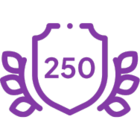This is one big day for Nintex
This is a huge deal, if I can say so myself; and as a long time user of Nintex, seeing the evolution that has occurred from Nintex 2007 to the fourth generation of the Workflow product is breathtaking because it truly makes designing workflows so easy.
On May 4, 2016, Microsoft rallied its ecosystem and, for the first time in a very long time, showered tons of love and marketing into an event centered on SharePoint® Server. Their well-executed goal was to bring assurance that SharePoint Server was still part of the strategy for Microsoft. If, like me, you were in attendance, you probably walked away with, “okay, time to figure out my SharePoint Server game plan and how much I want to leverage with SharePoint on-premises vs. using SharePoint online with Office 365.”
The overall theme was good news for a lot of us who’ve seen the good, the bad, and the ugly with SharePoint Server since its market debut in 2001. With the 7th version coming out, I’m more confident than ever that the best workflow platform for automating anything with SharePoint is still, without a doubt, Nintex.
So to you – the risk takers, the beta testers, the latest release seekers, or the geeks who like to try new stuff – it is my honor to present to you: Nintex for SharePoint 2016 general availability.
What you can expect with Nintex for SharePoint 2016
Let’s start with some context before walking through the features because it’s important to understand a few things about Nintex and how we enable people like you.
Much has occurred in the way of updates and functionality in products available to mainstream customers. Many users now come to expect consistency within the design of the UX they work with every day. In other words, we aim to set the standard when it comes to how you interact with a workflow designer. We have journeyed right alongside you, and for us, the modernization of our workflow and forms designers were done to purposefully provide you with even more ease of use with Nintex. After all we did to workflow designing what Apple did to music and phones – we revolutionized workflow design by bringing a visual element to the lines of code that dominated Visual Studio and SharePoint Designer. That’s what I call a powerful product value.
Context complete, now let’s see those features. The Nintex 2016 Forms and Workflow designers have a brand new look that will make almost any developer drool over their workflow designs.
|
Figure 1 New Nintex Workflow Designer UI |
Figure 2 New Nintex Forms Designer UI |
Seriously, just take a look at these sexy new icons – look how clean and simple they look. The goal is to focus you on building out your workflow, not spending loads of hours trying to understand the product. For users familiar with earlier versions, don’t worry about having to learn everything from scratch. The richer user interface with a flatter design theme was geared to help the product load faster and, best of all, work seamlessly across multiple browsers.

Figure 3 Supported Browsers
Yes, what you just read is no typo: Nintex for SharePoint 2016 also has cross browser support which means you’re not restricted to using IE only. Now you can try Edge, Firefox, Chrome, Internet Explorer, Safari, Opera and BING (I know, I know, BING is not a browser – just wanted to be sure you were still with me). While we do work with multiple browsers, this is not a guarantee for all versions for all browsers. If you know that SharePoint supports a browser, then it’s a pretty safe bet that Nintex supports that as well.
If you’re looking at comparisons between 2010 and 2016 you may notice that the Catalog button isn’t there anymore. We integrated the bulk of those actions directly into the toolbar so the experience of finding and dragging actions is a heck of a lot easier for all of us -- especially for newbies designing workflows or forms.
Again, I want to reiterate, the point of the product after all is to make workflow design easy and Nintex for SharePoint 2016 is still 1000% better than using SharePoint Designer or custom code because all those actions are right there in your designer. Plus there’s some smooth expanding and collapsing functionality, making it a breeze to find the right action quickly.
Speaking of breeze, you got to check out the image I spent so much time making just for you. I was so impressed that I just had to show you how smooth the interactivity is now. Maybe it’s just me, but it’s the little things that help make using Nintex so easy and smooth.
Figure 4 Nintex for SharePoint 2016 Workflow designer
As you browse around, you’ll notice the new CONNECTORS tab that has been introduced to the workflow actions area. Users are always trying to connect with more and more systems, and with this version, you can now do just that. So go ahead and connect away.
You can connect to systems such as Adobe Sign, Amazon, Box, Bitly, DocuSign, LinkedIn, OneDrive, Salesforce, Twitter, Wunderground, Yammer, and more. Just think of all the things you could automate like document signatures during a contract review process, social media updates after a completed press release, or a new lead being generated directly in your CRM based on data from a mobile app during a customer conference. With those nifty actions, you can bring all sorts of functionality directly within your SharePoint farm and Nintex handles the processes, the authentication, and the logic for you.
The list of connectors is not static, so keep checking to see what’s been added or updated. If you’re crafty enough, you could even build your own connector or custom action to use within Nintex as well and load that to the Nintex Gallery for people to use. How’s that for connecting away?
Nintex is built for your hybrid and multi-system needs.
Gone are the days of massive systems custom built to do everything you want in one system. Nowadays, process owners often have to jump between two or more systems to do things like contract management, lead generation, equipment tracking, and employee onboarding. While SharePoint Server continues to be a strong make-shift intranet for all kinds of processes, companies are also attempting to leverage Office 365 to take advantage of the latest and greatest features like Delve, Co-Authoring, and Simplified Sharing, just to name a few.
With Nintex for SharePoint 2016, you can now tackle those hybrid scenarios, such as continuing your process in SharePoint after an event is externally completed. Imagine, for example, that when you have a closed deal in your CRM (e.g. Salesforce), a contract document in SharePoint is automatically populated and sent to your manager for an approval and signature. Before, you would have to grab data from your CRM, then open, edit, and upload that contract document into SharePoint, and you still need it approved and signed. Nintex workflows are built to handle that level of sophistication, leaving you with more time to close more deals instead of copying and pasting data.
 Figure 5 Nintex for SharePoint 2016 External start view
Figure 5 Nintex for SharePoint 2016 External start view
Using site-based workflows and web services with REST endpoints, the external start feature in Nintex for SharePoint 2016 gives you the confidence and security needed to connect what used to be disparate systems. Now the entire business process can be automated connecting the user and the data regardless if it’s all on-premises or partially in the cloud.
When I say cloud, I’m not limiting that to SharePoint Online (Office 365). Earlier I referenced connectors like Box, Salesforce and Yammer to be used with workflows. By leveraging cloud based service connectors like Zapier or Azuqua that connection story just grew faster and further enabling process automation on an entirely new level. Just take a look at some of these options:
Figure 6 Cloud based connectors from Azuqua
Following our move to subscription pricing for the Nintex platform, we have rolled out a few changes that affect how you install, activate and administrate Nintex within your SharePoint Farm. For those still looking to move to SharePoint Server 2013, some of these changes will be retrofitted; however, I would recommend going to SharePoint Server 2016. Why, because you can get Nintex 2016, duh!
Some additional amazing changes you should know about.
One of the biggest enhancements that I want to point out is the new deployment package and installation process. It’s one of those behind-the-scenes things that just makes you want to smile when you see it. No, we don’t force you to install everything, but take my recommendation and choose both, that way its already there and enabling it for users is so much easier than coming back to install it after the fact. Repeat with me... install both workflow and forms at the same time.
Good… you see this is just one area we decided to address to continue making the entire experience with Nintex easy for everyone, including the administrator responsible for deploying Nintex to the farm.
 |  |
Figure 7: Installation welcome page and selection view
The single deployment package makes grabbing and installing Nintex easier than ever before which means less time installing and more time designing, automating and enabling. That leads me into the next area where you’ll see some nice changes – Nintex Administration within Central Administrator.
Within Central Administration, we’ve consolidated the admin area for Nintex to make it easier to access what you actually need to administer Nintex: Licenses, Databases, and a new Support Console.

Figure 8: Nintex Administration within Central Administrator
Nintex licensing revamped
We gave this area a fresh look and incorporated some new changes to help the administrator manage the Nintex subscription aspects including number of workflows, actions, subscription entitlements, and even run subscription reports to stay compliant. Wow… that’s another topic for another time, just know that everything can now be found within Nintex Administration.
I would highly recommend that you just click around, get familiar with the links and information so you know what is where. Again we’ve saved you time on the install, so a few seconds looking through this should be educational.

Figure 9: Nintex Administration: Licensing view
Nintex Workflow Support Console
I mentioned the Workflow Support Console earlier and it’s something new that was introduced as part of that goal of making Nintex easy. If you’ve ever had to grab ULS logs, SharePoint logs, features deployed and more to help someone troubleshoot what’s going on with your farm, you will appreciate this new console. Now you can click a button to generate a workflow or farm package that contains all the necessary information necessary to send to Nintex Support or someone you have helping you troubleshoot Nintex issues with workflows within your farm.

Figure 10: Nintex Administration: Workflow Support Console
So after a nice little introduction to Nintex for SharePoint 2016, I thought it fitting to provide some links to a few more resources that you should check out:
- Nintex for SharePoint 2016 Installation guide
- Product Downloads
- Upgrading to 2016
- Visit Nintex Gallery for example workflows and forms designs compatible with Nintex 2016.
Now go and automate something amazing.
Cheers.







